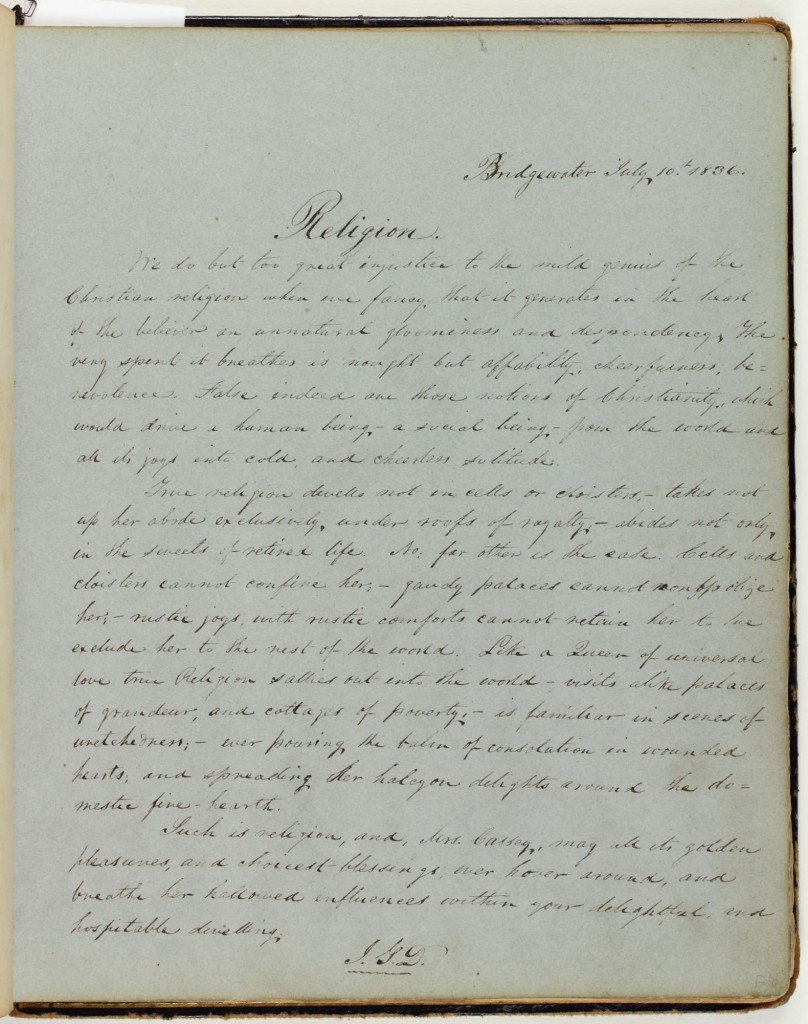Preface (3)
6|7|8|9|10|11-12|13|14|15|16|17|18|19|20|21|22|23|24|25|26|28|30|31|32|33
34|35|36|39|42|44|47|49|51|52|53|54|55|56|57|59|62| 63|64-68|70|73|75

Bridgewater, July 10th, 1836.
Religion.
We do but too great injustice to the mild genius of the
Christian religion when we fancy, that it generates in the heart
of the believer an unnatural gloominess and despondency. The
very spirit it breathes is nought but affability, cheerfulness, be-
nevolence. False indeed are those notions of Christianity, which
would drive a human being – a social being – from the world and
all its joys into cold and cheerless solitude
True religion dwells not in cells or cloisters, – takes not
up her abode exclusively, under roofs of royalty, – abides not only
in the sweets of retired life. So: far other is the case. Cells and
cloisters cannot confine her; – gaudy palaces cannot monopolize
her; – rustic joys with rustic comforts cannot cannot retain her to __
exclude her to the rest of the world. Like a queen of universal
love true Religion sallies out into the world – visits alike palaces
of grandeur, and cottages of poverty. – is familiar in scenes of
wretchedness; – ever pouring the balm of consolation in wounded
hearts; and spreading her halcyon delights around the do-
mestic fire – hearth.
Such is religion, and, Mrs. Cassey, may all its golden
pleasures, and choicest blessings ever hover around, and
breath her hallowed influences within your delightful and
hospitable dwelling.
I.G. D.
This page of the Cassey album features an essay on religion attributed to reverend Isaiah G. DeGrasse. The author attempts to discredit the claims that Christianity is a religion of sadness and exclusivity. True religion does not spread “unnatural gloominess and despondency”; rather it “breathes… affability, cheerfulness, benovolence.” The author rejects these perceptions, and advocates against these understandings of Christianity. The writer explains what theybelieve to be the truisms of Christianity, focusing on the work of those who travel to “cottages of poverty” and pour the “balm of consolation in wounded hearts.” In an age of reform movements, this essay may have been written in order to persuade Cassey to increase her philanthropic work.
